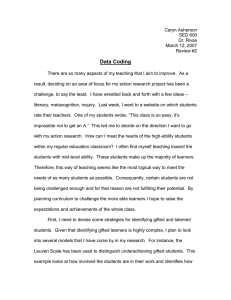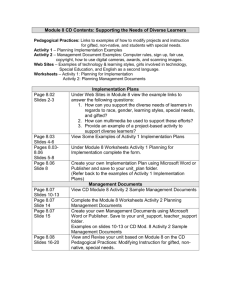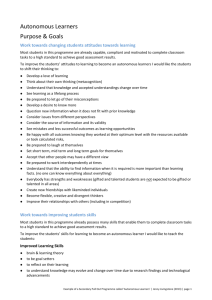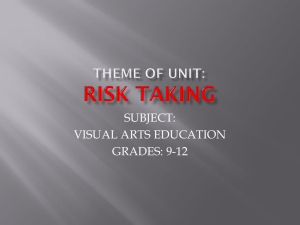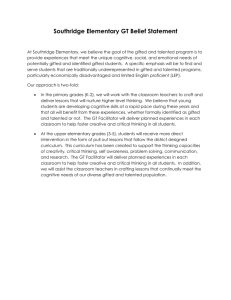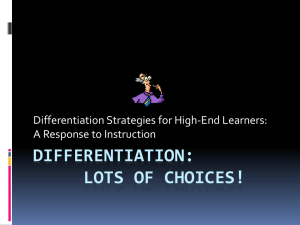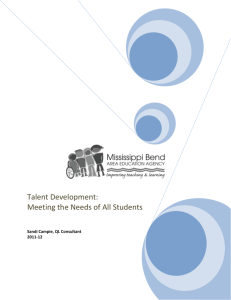Count us all in - inclusion: effective practice
advertisement
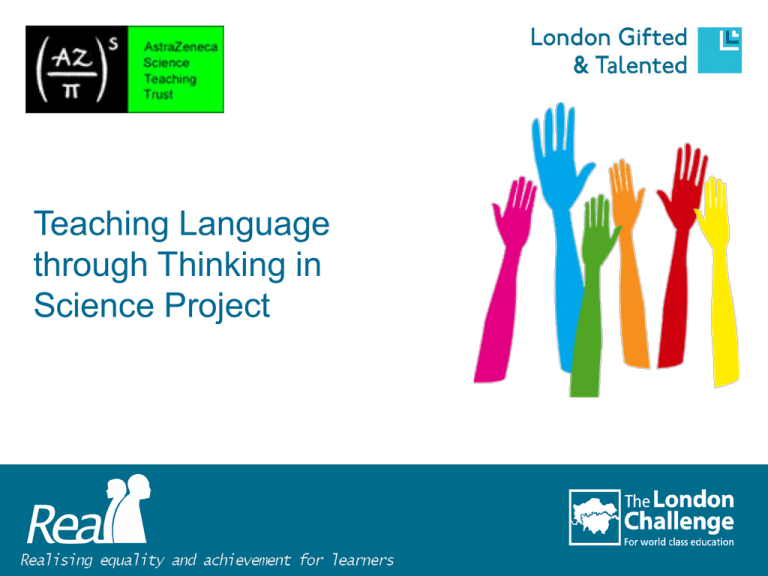
Teaching Language through Thinking in Science Project Project team Matt Dickenson, LG&T, matt.dickenson@londongt.org Ian Warwick, LG&T, ian.warwick@londongt.org Manny Vazquez, Hounslow Language Service, manny.vazquez@hounslow.gov.uk Pat O’Brien, Independent Consultant, ttc31@aol.com Helen Wilson, Oxford Brookes University, h.wilson@brookes.ac.uk Building on the REAL Project National project to improve quality of gifted and talented education in England Positive model for inclusion – realising equality of access and achievement for disadvantaged and under-represented learners Engaging with 50 local education authorities and 1,500 schools Transforming approaches to gifted education www.realproject.org.uk The REAL toolkit www.realproject.org.uk DVD Programmes 1. New arrivals. All new arrivals can be assessed as potentially gifted and talented 2. Advanced learners. High challenge for G&T pupils who are learning EAL. Developing linguistic and cultural capital 3. Pupils, parents and communities. The voice of communities and their attitudes to G&T. Recognising culturally specific gifts, talents and capital 4. Mentoring. Positive models of mentoring learners from BME backgrounds Core values for an inclusive G&T strategy All learners are entitled to be stretched and challenged – high challenge, low threshold learning (making high challenge accessible, not exclusive) The most effective G&T provision is rooted in good teaching and learning within the classroom (not outside it) G&T is expertise in a development stage – knowledge, skills and experience for the future (it is not about the past) Classroom G&T should focus on developing positive learning behaviours in all learners (not just the identified gifted and talented) Academic literacy Developing a working understanding for science What is academic literacy? the ability of a person to use speaking, listening and thinking to learn what they need to learn and to communicate that to others in a form which demonstrates their learning Melzer What is academic literacy? learning as well as communication depends on what student is being prepared for… reflects what educators recognise as the intellectual and practical abilities of their successful students involves positive learning behaviours, subject skills, task commitment; past, current and potential achievement involves all four skills – speaking, listening, reading and writing, but is normally heavily weighted in favour of writing and formal communication Academic writing is difficult (should be cognitively demanding) tends to have an argument conforms to certain rules which vary from one context to another, e.g. genre - formal vs. informal, everyday vs. specialist involves repeated interaction, e.g. drafting and redrafting takes time to develop Academic writing and talk require students to: adopt an ‘other voice’ – this can be third person academic, specific role or position in argument, etc. exercise control over register, vocabulary etc operate within specific boundaries whilst demonstrating critical skill develop an library of effective strategies to meet the demands of different contexts
